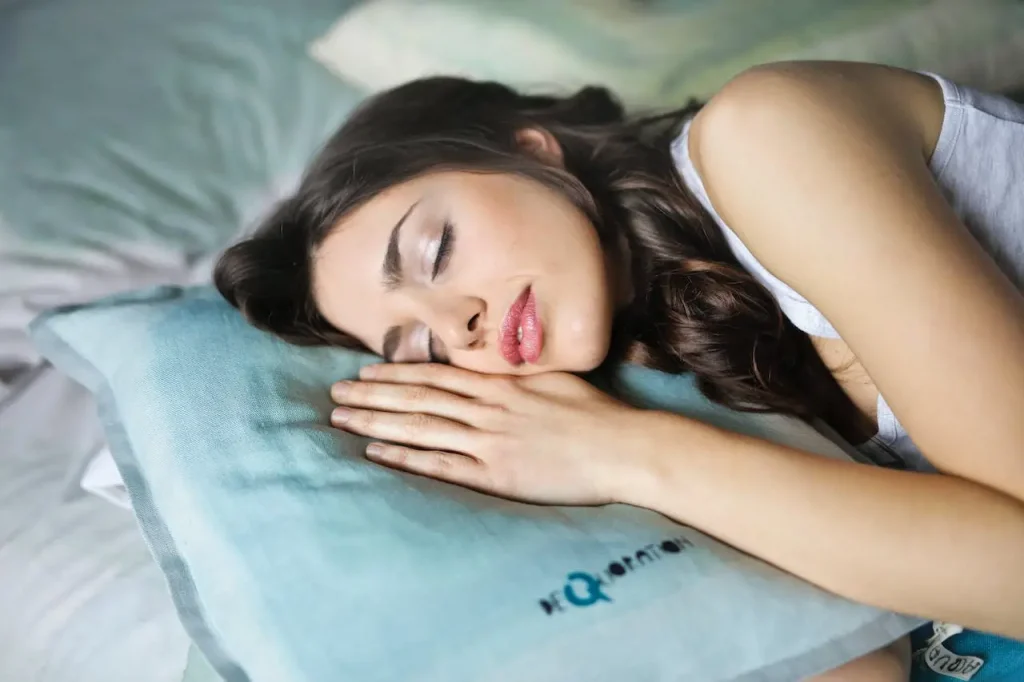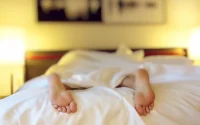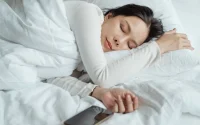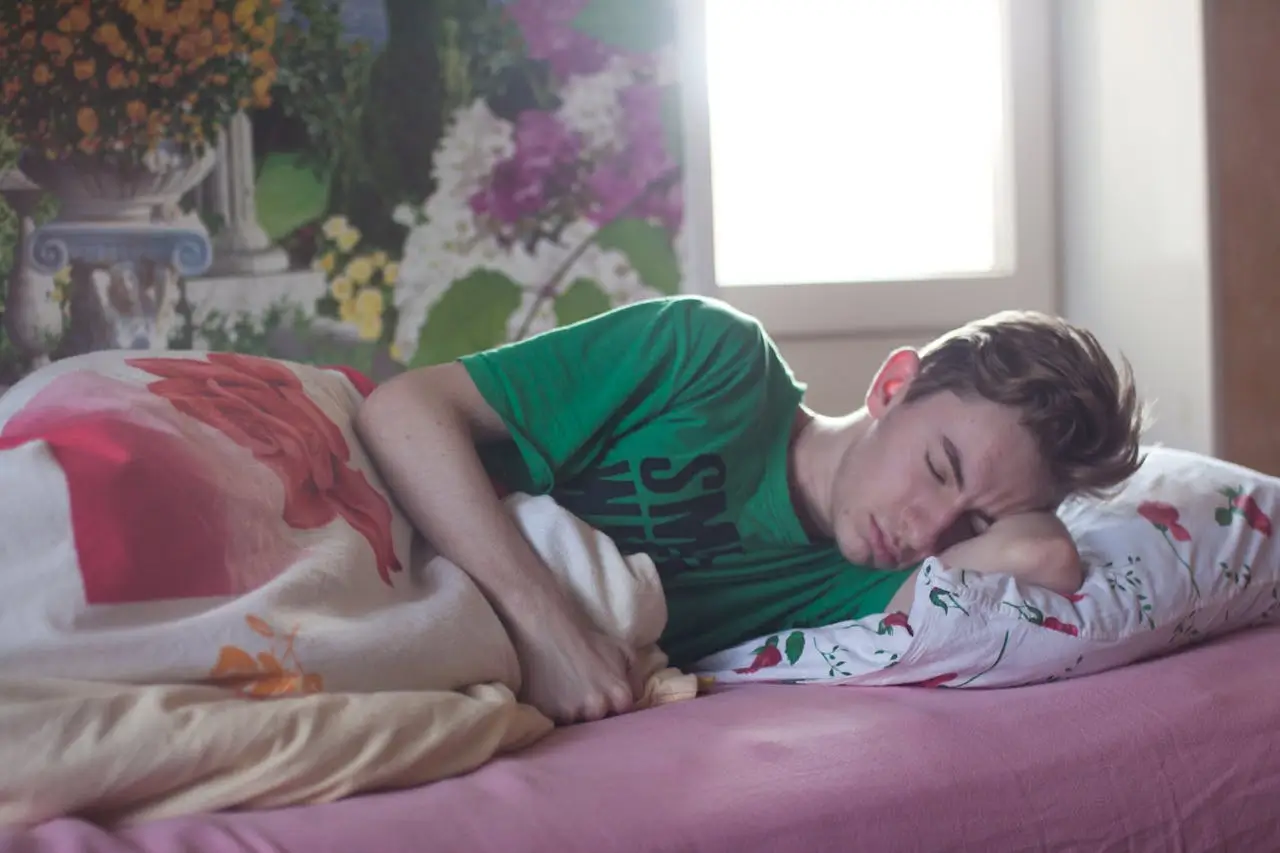Why Alcohol Disrupts Your Sleep

Do you find yourself tossing and turning at night after a night of drinking? You’re not alone. The relationship between alcohol and sleep is a complex one, and it’s important to understand how alcohol can disrupt your sleep patterns. In this article, we will explore the reasons why alcohol negatively impacts the quality of your sleep.
The Effects of Alcohol on Sleep
When you consume alcohol, it may initially make you feel drowsy and relaxed, leading you to believe that it will help you sleep better. However, research shows that while alcohol can help you fall asleep faster, it disrupts the later stages of sleep, including REM (rapid eye movement) sleep, which is essential for restorative rest. As a result, you may experience fragmented sleep, frequent awakenings, and a decrease in overall sleep quality.
Alcohol has a sedative effect on the body, which can make you feel sleepy and help you fall asleep faster. However, as the alcohol is metabolized by your body, it acts as a stimulant, causing awakenings and disturbances in sleep. This disruption can lead to daytime sleepiness, fatigue, and difficulty concentrating.
How Alcohol Affects Sleep Quality
Alcohol affects the sleep architecture, or the different stages of sleep, in various ways. While it may help you fall asleep initially, it can lead to lighter and more restless sleep throughout the night. This is because alcohol suppresses REM sleep, the stage of sleep associated with dreaming and cognitive restoration. Without sufficient REM sleep, you may wake up feeling groggy and unfocused.
Moreover, alcohol acts as a diuretic, causing an increase in urine production throughout the night. This can lead to more frequent trips to the bathroom, further interrupting your sleep. Additionally, alcohol can relax the muscles in your throat, increasing the likelihood of snoring or developing sleep apnea, which can further disrupt your sleep quality.
Alcohol and Sleep Disorders
Alcohol can also exacerbate existing sleep disorders or contribute to the development of new ones. For example, individuals with insomnia may find that alcohol initially helps them fall asleep, but it can disrupt the overall quality of their sleep and worsen their insomnia symptoms over time.
Similarly, individuals with sleep apnea, a condition characterized by interrupted breathing during sleep, may experience more frequent apnea events and decreased oxygen levels when they consume alcohol. This can lead to further sleep disturbances and increased health risks associated with sleep apnea.
The Science Behind Alcohol-Induced Sleep Disruptions
To understand why alcohol disrupts sleep, it’s important to delve into the science behind its effects on the body. Alcohol affects the production and release of various neurotransmitters in the brain, including gamma-aminobutyric acid (GABA) and adenosine, which are involved in regulating sleep and wakefulness.
GABA is an inhibitory neurotransmitter that helps calm brain activity and promote sleep. Alcohol enhances the effects of GABA, leading to sedation and drowsiness. However, as the alcohol wears off, the brain experiences a rebound effect, resulting in increased brain activity and disruptions in sleep.
Adenosine, on the other hand, is a chemical that naturally builds up in the brain throughout the day, promoting sleepiness. Alcohol inhibits the release of adenosine, further disrupting the natural sleep-wake cycle and compromising the quality of sleep.
Tips for Better Sleep After Consuming Alcohol
If you’ve consumed alcohol and want to minimize the impact on your sleep, there are a few strategies you can try:
- Allow time for the alcohol to metabolize: Give your body enough time to process the alcohol before going to bed. It’s recommended to wait at least two to three hours after your last drink before attempting to sleep.
- Stay hydrated: Alcohol can dehydrate the body, so make sure to drink water throughout the evening and before bed to maintain adequate hydration.
- Create a conducive sleep environment: Make your bedroom a sleep-friendly space by keeping it cool, dark, and quiet. Use earplugs or a white noise machine if necessary to block out any disruptions.
- Practice relaxation techniques: Engage in relaxation techniques such as deep breathing, meditation, or gentle stretching before bed to help calm your body and mind.
- Establish a consistent sleep routine: Stick to a regular sleep schedule, even on weekends, to help regulate your body’s internal clock and improve overall sleep quality.
Alternatives to Alcohol for Better Sleep
If you’re looking to improve your sleep patterns, it may be worth considering alternatives to alcohol. Instead of relying on alcohol to relax before bed, try incorporating these sleep-promoting alternatives into your nighttime routine:
- Herbal teas: Chamomile, lavender, and valerian root teas are known for their calming properties and can help promote relaxation before bed.
- Warm milk: Warm milk contains tryptophan, an amino acid that helps increase the production of serotonin and melatonin, two hormones that regulate sleep.
- Relaxation exercises: Engage in activities such as reading a book, listening to soothing music, or taking a warm bath to help wind down and prepare your body for sleep.
- Progressive muscle relaxation: Practice tensing and relaxing each muscle group in your body, starting from your toes and working your way up. This technique can help release tension and promote relaxation.
- Mindfulness meditation: Focus on the present moment and observe your thoughts and sensations without judgment. This practice can help calm your mind and prepare you for sleep.
The Relationship Between Alcohol and Insomnia
Insomnia is a sleep disorder characterized by difficulty falling asleep, staying asleep, or both. While alcohol may initially help individuals with insomnia fall asleep faster, it can worsen the overall quality of their sleep and contribute to the persistence of insomnia symptoms.
Alcohol disrupts the natural sleep architecture and can lead to fragmented sleep, decreased REM sleep, and increased awakenings throughout the night. This can perpetuate a cycle of poor sleep quality and insomnia symptoms.
How Alcohol Impacts REM Sleep
REM sleep, also known as rapid eye movement sleep, is a crucial stage of sleep associated with memory consolidation, learning, and emotional regulation. Alcohol suppresses REM sleep, leading to a decrease in the amount and quality of REM sleep experienced.
Without sufficient REM sleep, you may wake up feeling groggy, irritable, and emotionally imbalanced. Additionally, REM sleep deprivation has been linked to cognitive impairments, such as difficulties with attention, concentration, and problem-solving.
Alcohol Withdrawal and Sleep Disturbances
For individuals who regularly consume alcohol, the cessation or reduction of alcohol intake can lead to withdrawal symptoms, including sleep disturbances. Alcohol withdrawal insomnia is a common symptom experienced during the early stages of recovery.
As the body adjusts to the absence of alcohol, it undergoes physiological changes that can disrupt sleep patterns. These changes can cause difficulties falling asleep, staying asleep, or experiencing restful sleep during the withdrawal period. It’s important to seek medical guidance and support when dealing with alcohol withdrawal to manage the associated sleep disturbances effectively.
Conclusion: The Importance of Prioritizing Sleep Over Alcohol Consumption
Understanding the impact of alcohol on your sleep is crucial for ensuring a good night’s rest. While alcohol may initially make you feel drowsy and relaxed, it ultimately disrupts the later stages of sleep, leading to fragmented sleep, frequent awakenings, and a decrease in overall sleep quality.
Prioritizing sleep over alcohol consumption is essential for maintaining a healthy sleep routine and optimizing your well-being. By implementing strategies to minimize the impact of alcohol on your sleep, exploring alternatives to alcohol for relaxation, and seeking professional help when necessary, you can improve your sleep patterns and wake up feeling refreshed and energized each morning.
So, the next time you’re tempted to reach for a nightcap, consider the long-term effects on your sleep and make a conscious choice to prioritize your rest. Your mind and body will thank you for it.
Disclaimer: This article is for informational purposes only and should not replace professional medical advice. If you have concerns about your sleep or alcohol consumption, please consult with a healthcare professional.


